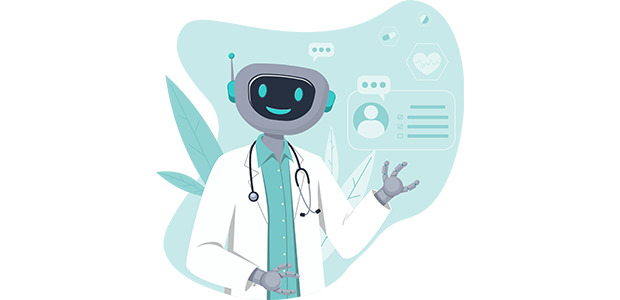
AI: a lifeline for healthcare
Global healthcare systems are at a breaking point. A global pandemic, economic volatility, and global political shake-up have created an environment where healthcare cannot thrive. Adding to this, we are facing a large aging population that is being cared for by a shrinking workforce, creating huge fiscal tension.
The answer isn’t hiring more doctors and nurses. Highly skilled staff are evidently not waiting in the wings. Instead, we should look for solutions that can make our currently analogue healthcare system more efficient. The best candidate? AI.
We need to hand back time to doctors so that they can do what they do best: care for their patients. There is much time to be gained by letting AI aid with administrative tasks or making diagnoses, thereby reducing waiting lists. For healthcare, AI offers a lifeline; and for entrepreneurs, a once-in-a-generation opportunity to deliver technology which has broad application and far-reaching impact.
First up, releasing doctors from administrative tasks. Now, doctors spend almost as much time on admin as they do with patients: completing forms, writing notes, managing schedules. These tasks are inefficient and exceedingly expensive when you consider the value of the time of the person undertaking them. AI can lift the burden. New solutions are already automating the juggling act of scheduling appointments, managing insurance claims and documentation, cutting 10-30% of current healthcare spending.
Whilst AI will never replace the care of a doctor, it can assist in the streamlining of medical notes, plan staffing, and suggest medical hypotheses based on aggregated data, thereby unlocking up to 70% of a doctor's time which is lost to non-patient tasks. For radiology examinations, AI-driven image diagnostics sharply cuts the costs for analysis by a clinician, helping to clear the backlog of patients waiting on diagnosis. For example, Quadrivia has created one of the world’s first comprehensive AI clinical assistants, Qu – which provides real-time, personal and reliable support for clinical and administrative tasks.
As an investor, I’m particularly passionate about preventative care because whilst it has always made scientific sense, it now makes business sense too.
Solutions which tackle real medical pain points – especially for chronic care patients who require consistent monitoring of their condition - will make the most impact. Those which are grounded in clinical reality, breaking free of the slick UIs or lifestyle nudges normalised by current wearable tech, will make the most impact. Preventative care which is supercharged by AI is key to meeting lasting demand. It can drive cost savings, reduce acute events, and move healthcare from crisis response to long-term resilience.
Finally, if AI can nail the pain points of drug development, it will revolutionise the future of medicine. Bringing a new drug to market currently takes an average of 12 years. This is slow and holds back progress on treatment that could save lives. Even today’s AI tools are able to flag inefficiencies in trial design, streamline protocol generation, and optimise recruitment data collection. This is what Biorce does – an AI-driven platform rethinking the clinical trial process end-to-end.
AI in healthcare is an exciting prospect. I would forewarn any entrepreneurs working in this space that AI is currently in its gold rush. Most startups will not last. But those that do will be those solving the problems that matter most – such as the problems faced by the global healthcare industry. New breakthroughs in AI mean that real – and lasting – change is within reach.
For more startup news, check out the other articles on the website, and subscribe to the magazine for free. Listen to The Cereal Entrepreneur podcast for more interviews with entrepreneurs and big-hitters in the startup ecosystem.

